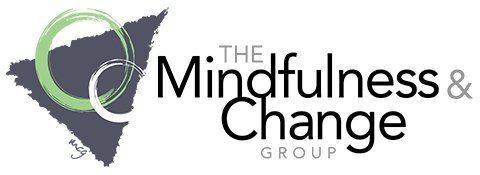
Dialectical Behavior Therapy (DBT)
What is DBT?
Who is right for it? What does treatment look like?
The Mindfulness & Change Group’s Dialectical Behavior Therapy (DBT) Program provides comprehensive evidence-based treatment for individuals who have difficulties with managing emotions, self-injury, suicidal ideation, disordered eating, risky behaviors, unstable relationships, or addictions.
At MCG We take DBT seriously
We’re here to demystify DBT and help you decide if this treatment option is right for you.
-
Dialectical Behavior Therapy (DBT) is a type of therapy that focuses on increasing skillful behavior in four areas: mindfulness, distress tolerance, emotion regulation, and interpersonal effectiveness.
-
This treatment approach is appropriate for children (10-13 y/o), adolescents (14-18), and adults (18+) who struggle to regulate emotions, manage interpersonal relationships, and/or those who have a history of self-harm behaviors such as cutting or suicidal thoughts or actions.
DBT has been found to be effective with individuals from diverse backgrounds (e.g. age, gender, sexual orientation and race/ethnicity) and other conditions, such as PTSD, eating disorders, and substance use.
-
DBT consists of individual weekly DBT therapy, skills training in group therapy, 24/7 phone coaching access, and if the patient is a child or adolescent, family involvement.
Individual Psychotherapy (1 hour weekly): At least once a week, clients meet with an MCG therapist with advanced DBT training. Clients fill out a diary card during the week and then review the card with their therpists at the start of each session to set an agenda. Client are guided toward an understanding of what is contributing to their problems and will learn new and more effective DBT skills to apply in their unique challenges. Therapists help clients to recognize and develop their innate strengths while working toward therapeutic goals.
Skills Group (2 hours weekly): For 24 weeks, clients participate in weekly DBT skills groups to learn specific skills that are essential for managing emotional distress, including Mindfulness, Interpersonal Effectiveness, Emotion Regulation, and Distress Tolerance. Adult groups are offered virtually on Tuesdays, from 12:00-1:45pm or from 6:30-8:15pm. Learn more about DBT Group Therapy.
Phone Coaching: Clients will have access to their DBT therapist for phone coaching outside of session times for guidance on how to use newly developed DBT skills in the moment. Typically the calls last 5-10 minutes. Therapists try to make themselves available for phone coaching outside of business hours. When phone calls are not possible, DBT participants have a safety plan to refer to in order to help themselves through crises.
Family Involvement: For children ages 10-13, we offer DBT-C, which involves a large family component.
For teens, we provide a teen DBT skills group and follow Alec Miller’s DBT-A model, which also involves a large family component with parents, caregivers, or loved ones participating in DBT skills training and family meetings to strengthen the relationships, support the client, and allow the family to learn DBT skills.
-
Treatment is approximately 6-12 months.
-
DBT organizes treatment into ‘stages’ and ‘targets’ to: 1) address issues that are life-threatening or interfere with effective treatment 2) learn new coping behaviors.
DBT is organized into the following four stages:
Stage 1: The first stage of DBT therapy targets improving behavior control. During this stage, clients learn to reduce and eliminate behaviors that affect quality of life, are life-threatening and/or interfere with treatment. Additionally, clients will learn skills to help improve relationships and emotional regulation. Any co-occurring disorders, such as depression, anxiety disorders, or eating disorders, are also targeted at this time.
Stage 2: During the second stage of DBT therapy, the target shifts to learning how to fully express emotions to decrease “suffering in silence.” Work in individual sessions during stage 2 addresses any trauma or symptoms of Post Traumatic Stress Disorder (PTSD) and helps develop the capacity to experience emotions without shutting down.
Stage 3: The third stage of DBT therapy targets strategies to resolve ordinary life problems, such as relationship issues or career concerns, with the goal to live a more functional life.
Stage 4: The final stage of DBT therapy targets developing a sense of connection to others and the world. -
Adherence refers to practicing full model DBT the way it was designed and researched to work. Although DBT is widely used, the degree to which it is delivered in a manner consistent with the evidence-based model varies considerably across therapists and programs. Many clinicians offer DBT-informed therapy, which involves incorporating elements of DBT (i.e. just skills with no phone coaching). This nonadherent model of DBT can be ineffective, leading individuals to think that DBT doesn’t work. When practiced adherently, there is a full structure and system of DBT that has proven effectiveness from randomized clinical trials. As a specialty practice valuing truly evidenced-based work, MCG provides adherent DBT. Our team members are either currently certified in DBT (Betsy Harris) or in the process of becoming certified. Within our practice, we offer the 4 main components of adherent DBT (individual and group DBT, phone coaching, and therapists participating in a DBT consultation team).
-
Complete our New Client Inquiry form. Our DBT Director Besty Harris will contact you to schedule a brief phone consultation (~20 minutes) to provide you with more information about DBT and to learn more from you about the main problems bringing you into treatment.
-
Our DBT program is self-pay and does not bill insurance directly. If your insurance company has out-of-network benefits, or you have a PPO plan, you might qualify for reimbursement from your insurance company. MCG can provide you with a superbill of all services rendered, which you can then submit to your insurance company for reimbursement. We also offer a sliding scale for those who apply and are financially eligible. Learn more about payment options.
Meet the MCG DBT Team





